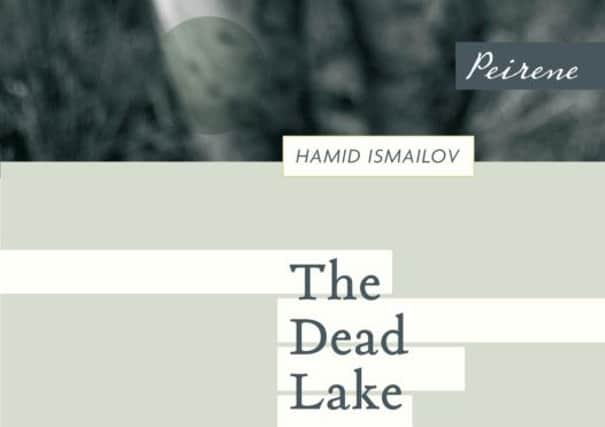Book review: The Dead Lake by Hamid Ismailov


The devastating effect on those who dwelt within the deadly radius of the Semipalatinsk plant becomes a haunting, inverted fairy tale in the hands of Hamid Ismailov, a gifted writer born in Kyrgyzstan but who moved to Uzbekistan as a young man.
The Dead Lake is his poetic masterpiece, a novella of shocking legacies, alien beauty and blistering emotional intensity which marks the start of Peirene’s new Coming-of-Age: Towards Identity series.
Advertisement
Hide AdAdvertisement
Hide AdNever afraid to seek out the darkest corners of European history wherever that may lead and however unpalatable the truths hidden in its recesses, independent publisher Peirene’s mission is to deliver the very best European literature to an English-speaking audience.
Ismailov, who fled to the UK in 1994 and whose work is still banned in Uzbekistan, weaves the folklore and myths of central Asia into the story of Yerzhan, a young boy from a remote part of Kazakhstan who swims in a forbidden lake of radioactive water in a moment of disastrous bravado.
His growth permanently stunted and his romantic ambitions killed at a stroke, he is doomed to spend the rest of his life imprisoned in the body of a 12-year-old boy.
Andrew Bromfield’s masterful translation captures every emotional nuance and atmospheric nugget of the original Russian text, compelling us to reimagine the past and transporting us to ‘a beautiful, fierce landscape like no other in Western literature.’
Advertisement
Hide AdAdvertisement
Hide AdYerzhan was born at one of the two houses at the Kara-Shagan way station of the East Kazakhstan Railway where his trackman grandfather taps wheels and brake shoes at night and switches points by day.
Yerzhan, a talented violinist, spends his days running between his home and next door to see his playmate Aisulu whose ear he has nibbled as token of their early, unspoken engagement. Her father, Shaken, works at the atomic plant and is fuelled by an obsessive belief that ‘We’ll not only catch up with the Americans, we will surpass them.’
It should be an idyllic childhood for Yerzhan and Aisulu amidst the wild wonders of a land where school is a camel or donkey ride away, the cry of wolves fills the air, epic storytelling is the bedrock of their culture and the endless, empty steppes criss-crossed only by rail tracks are a vast playground.
But their lives are blighted by nuclear test explosions which sweep under and over homes ‘as a rumbling and a trembling, and then a swirling, sweeping tornado.’
Advertisement
Hide AdAdvertisement
Hide AdAnd when Shaken takes a party of schoolchildren to his workplace at the nuclear ‘Zone’ and they visit the bewitching Dead Lake, ‘a stretch of emerald-green water’ created from a nuclear blast, Yerzhan ignores warnings and wades recklessly into its dense, static depths.
As Aisulu develops into a beautiful woman and Yerzhan’s growth halts, he gives up school and tries out desperate remedies to increase his height but the reality is that he is entombed forever in ‘the fever of his own boyish hell.’
The Dead Lake is a memorable, miasmic microcosm of the damage inflicted on hundreds of thousands of Soviet citizens and a powerful lament to the perils of the arms race.
Yerzhan’s story, related through a narrator who encounters the man-boy selling yoghurt and playing his fiddle on a passenger train, has no happy-ever-after ending. His life journey is a stark and cautionary tale of blind, dangerous ambition, the appalling human cost of atomic experimentation and its disastrous environmental legacy.
Advertisement
Hide AdAdvertisement
Hide AdBut there is yet some ray of light in the bleak fall-out from this terrible ‘chain reaction.’ Yerzhan, with his ‘petrified boy’s body’ and his life reduced to ‘a short, sad song,’ comes to accept that ‘fate plays tricks on everyone.’
Resilient, determined and recognising that in twelve years he lived out the life granted to him, including the warmth of family, the happiness of love and the music of the soul, Yerzhan still has the capacity to forgive.
Down but not out, he refuses to be defeated by the hot, malevolent winds of the coldest of cold wars…
(Peirene, paperback, £12)